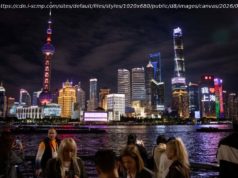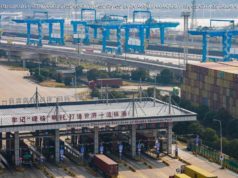 Ethics experts and human rights lawyers slammed the Vatican Tuesday for inviting a top Chinese health official to an organ trafficking summit despite concerns it still uses tissue from executed prisoners.
Ethics experts and human rights lawyers slammed the Vatican Tuesday for inviting a top Chinese health official to an organ trafficking summit despite concerns it still uses tissue from executed prisoners.
The Pontifical Academy of Sciences invited Huang Jiefu, the man in charge of overhauling China’s transplant system, to the two-day conference and he was expected to address the floor later on Tuesday.
Wendy Rogers, a medical ethics expert at Macquarie University in Australia and the chair of an advisory committee on tackling organ theft in China, slammed Huang’s presence as “shocking”.
Both the European Parliament and US Congress have recently condemned organ harvesting in China amid widespread concerns tissue is sourced from executed prisoners of conscience.
Victims reportedly include not only death-row prisoners but also religious and ethnic minorities such as Uighurs, Tibetans, Falun Gong spiritual practitioners and “underground” Christians.
Beijing issued its first regulation banning the trade of organs in 2007, but trafficking remains common as the country suffers a drastic shortage of donated body parts.
The practice of using executed prisoners’ organs for transplants was also banned in 2015, but some international medical groups suspect prisoners may be being reclassified as voluntary donors to get around the rules.
Rogers and a group of experts including a former surgeon from Xinjiang in China wrote to Bishop Marcelo Sanchez Sorondo, the academy’s chancellor, to warn that the church risked appearing to sanction the practice.
– ‘New form of slavery’ –
The Vatican “should be aware of how the endorsements — even indirect — of prestigious foreign bodies are used by China’s propaganda apparatus to burnish the reputation of its unethical transplant system,” the letter said.
Sorondo’s short response, seen by AFP, said the conference aimed “to be an academic exercise and not a reprise of contentious political assertions”.
A Vatican spokesman declined to comment on the issue to AFP.
Pope Francis has slammed illicit organ trafficking as a “new form of slavery”.
But the Vatican is also keen not to create a diplomatic incident with China. It is trying to re-establish ties with the country after six decades of estrangement.
The hope is to reconnect with China’s 12 million Catholics, which are currently divided between a government-run association and an unofficial church which swears allegiance to the Vatican.
Rogers wrote again, insisting the “failure of the academy to examine the evidence that forced organ harvesting has been, and is still happening in China, amounts to a form of complicity in these crimes”.
She heard nothing back.
Critics say that while Huang claimed China would stop using organs from executed prisoners from the start of 2015, the country has passed no new laws or regulations outlawing the practice.
– ‘Cover-ups’ –
China’s ratio of public organ donations was 0.6 to 100,000 people in 2014, one of the lowest in the world.
A 2016 investigative report entitled “Bloody Harvest/The Slaughter: An Update” claimed that while the official figure for legal transplants was around 10,000 per year, data from hospitals showed between 60,000 and 100,000 organs were being transplanted each year.
Concerns over the use of organs from executed prisoners persist today.
On Tuesday, the scientific journal Liver International retracted a 2016 China-based study on transplantation after its editor-in-chief, Mario Mondelli from Italy’s Pavia University, said the authors had failed to provide any evidence of the source of tissues used.
Francis Delmonico, a former head of the Transplantation Society who was appointed to the pontifical academy by Pope Francis, told Congress in June he could not verify that China had stopped using prisoners for organs.
The Vatican’s invitation reflected the fact Beijing had shown greater willingness to follow World Health Organization (WHO) guidelines on organ donation, he told China’s Global Times newspaper.
But Maya Wang, a researcher for Human Rights Watch in Asia, told AFP that a lack of transparency surrounding executions made it impossible to verify the government’s claims.
“We hope that the participation of (Huang) does not amount to a coming out party just because they have made these positive initial steps,” Wang said.
Rogers told AFP “the cover-ups and willingness by The Transplantation Society and the Vatican to accept self-interested Chinese assertions instead of looking at the evidence… is shocking. “






